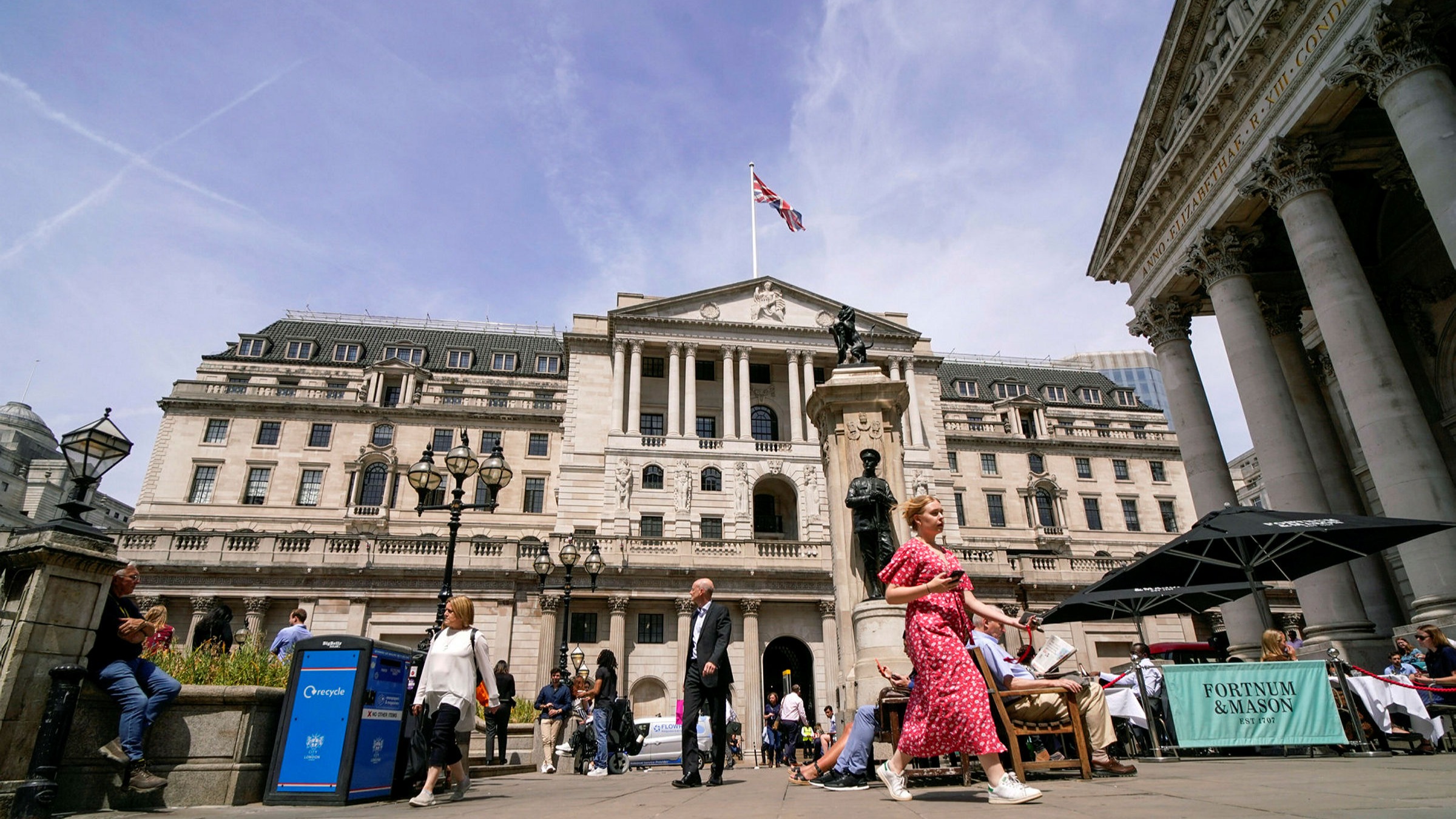Another record month for British pay growth put the Bank of England on track to raise interest rates once again. The unemployment rate rose, the number of people in work fell sharply and vacancies dipped below 1 million for the first time in two years.
Data Point to Cooling Labour Market in UK as Bank of England Prepares to Raise Interest Rates


Another record month for British pay growth put the Bank of England on track to raise interest rates once again, perhaps for the last time in the current cycle, as data on Tuesday also pointed to a cooling labour market.
Average weekly earnings growth in the three months to July rose to 8.5% in annual terms, up from 8.4% a month earlier and marking a new high, excluding distortions during the COVID-19 pandemic, in records dating back more than 20 years, the Office for National Statistics (ONS) said.
Most investors think this will prompt the BoE to raise interest rates again on Sept. 22, to 5.5% from 5.25%, as it tries to tame the highest rate of inflation among major advanced economies.
But other labour market gauges underlined caution about the economic outlook among many of the BoE's top officials.
The unemployment rate rose, the number of people in work fell sharply and vacancies dipped below 1 million for the first time in two years.
The bigger question is about the path thereafter," said Hugh Gimber, global market strategist at J.P. Morgan Asset Management. "The Bank will be reluctant to keep tightening if they've watched other central banks around the world hit pause.
"Yet if incoming data doesn't turn definitively, another hike to a terminal rate of 5.75% is absolutely on the table."
Last week, BoE Governor Andrew Bailey said the central bank is "much nearer" to ending its run of rate increases but that borrowing costs might still have further to rise because of stubborn inflation pressures.

 বাংলা
বাংলা  Spanish
Spanish  Arabic
Arabic  French
French  Chinese
Chinese 
